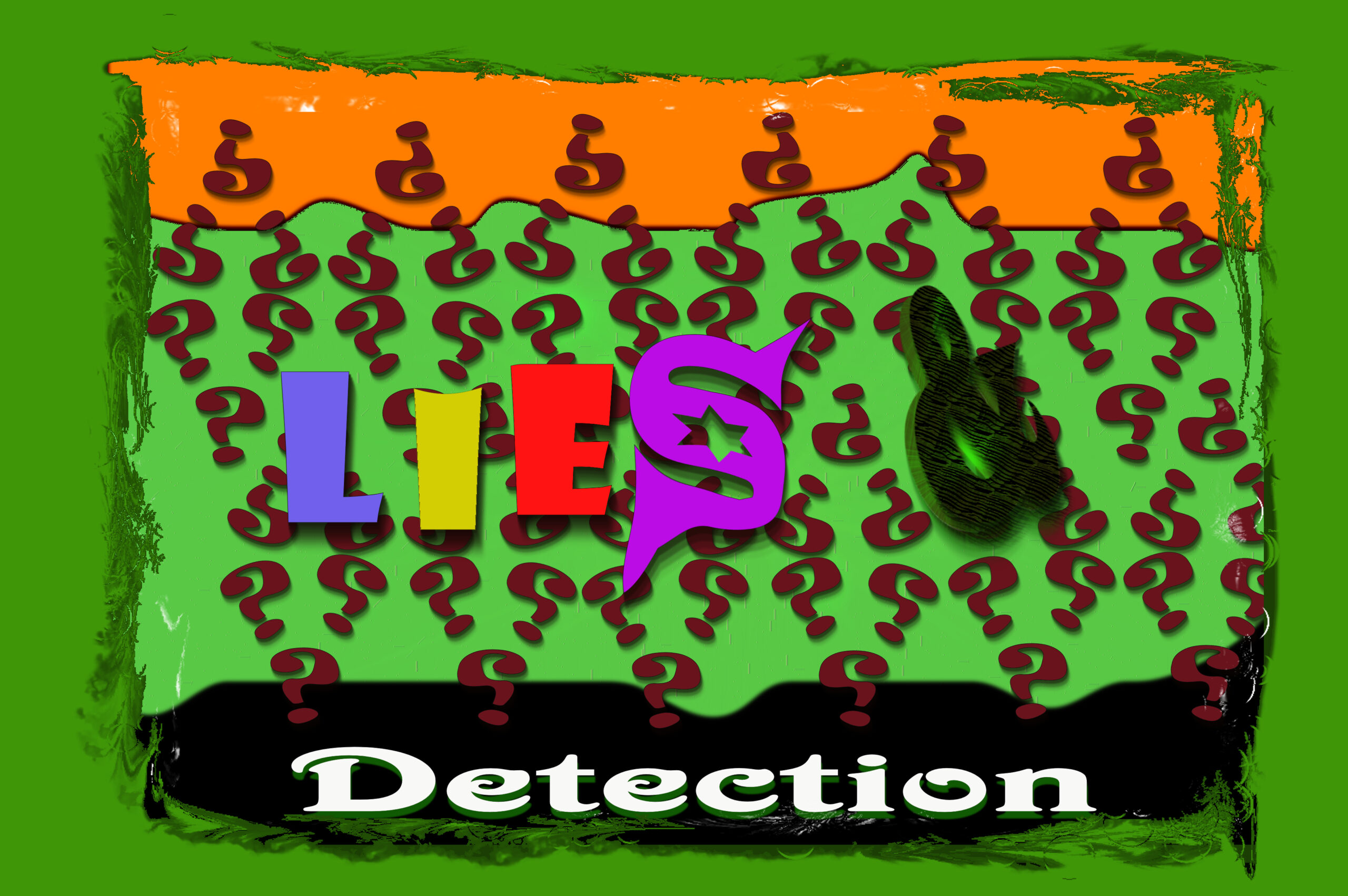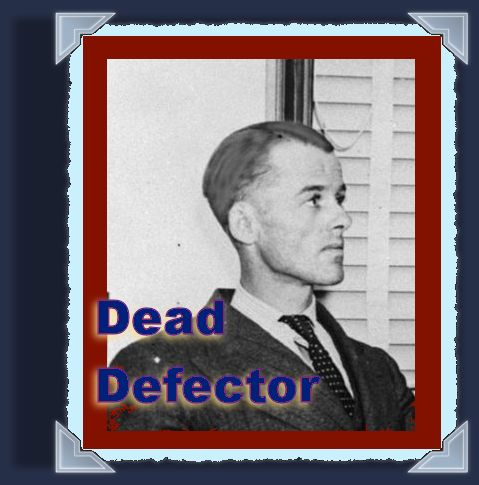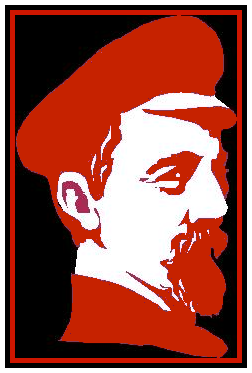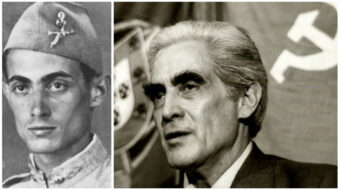
Podcast Season 2

Featuring

hosted by
Jonas Chartogaro,
Senior Polygraph Examiner (retired)



Jonas Chartogaro is the pseudonym of a recently retired Federal Agent. During his career, he served as a government polygraph examiner with over 25 years of experience. Prior to his Federal service, he worked as a New York police officer, investigating arsons, robberies, and murders. He possesses a Masters degree in American History and now teaches Cryptologic Security at a regional university.
We feature stories from his docu-drama series LIES & DETECTION. He uses his skills to interview historical people to determine the truth and to expose lies.
Appaloosa Radio offers two separate series of episodes for Jonas’ Lies & Detection.
- Interviews with members of the KGB spy rings that impacted the United States during the 1930s and 1940s. These interviews include: Miss Elizabeth Bentley; kGB General Walter Krivitsky; Juliet Stuart Poyntz; Congressman Samuel Dickstein; Martha Dodd; Laurence Duggan; Herta and Noel Field; Hede Massing; and (of course) Jacob Golos.
- Interviews with Leopold Trepper, based on his fascinating memoirs The Great Game.Leopold Trepper was the so-called “Big Chief” of the extremely successful ‘Red Orchestra” network of Soviet spies which operated in Nazi occupied countries during World War II. At its height, Trepper’s “Red Orchestra” group of spy networks operated in Belgium, France, Germany, Switzerland, England, and the Netherlands. Hitler regarded the “Red Orchestra” as his principal clandestine threat and assigned an elite group of senior counter-espionage agents (i.e., the Special Detachment for Red Orchestra) to track down and eradicate it. The ”Red Orchestra” network was only broken by turncoats from within. Of the nearly 300 agents that Leopold Trepper controlled, only 63 survived the War. The others were captured, tortured, and murdered. Nonetheless, the “Red Orchestra “conducted many of the boldest clandestine missions of the War. Trepper reported that the “Red Orchestra” was able to complete nearly 3,000 coded radio transmissions to Moscow, of which only about 250 were ever decoded by the German code-breaking teams.

Episodes

Queen of Lies -- Queen of Spies
Jonas Chartogaro nterviews Miss Elizabeth Bentley.”
“She was a former Soviet spy whose confessions to the FBI played a very significant role in shaping America during the late 1940s. Her revelations triggered the extensive anti-Communist loyalty probes that resulted in what came to be called the ‘McCarthy Era.’ ”
“However, today Miss Elizabeth Bentley has been largely forgotten.”
“What makes Elizabeth Bentley so interesting is that she was a compulsive liar. She lied to the KGB, she lied to the FBI, and she lied in both her Congressional and her courtroom testimonies.”
“Yet, hidden amongst those many lies were important slivers of truth, truths that eventually broke the back of the Soviet’s most insidious ring of spies.”
“In the interview, I will seek the truth and uncover her lies.”

Dead Defector
Dead Defector
KGB General Walter Krivitsky
“Psychologists studying the human brain often use ‘perceptual puzzles’ to illustrate cognitive processes. A ‘perceptual puzzle’ is an ambiguous stimulus that can be interpreted in a variety of ways. For example, one person may see a ‘tree’ in a picture, while another sees a ‘dog’ and a third sees a ‘leaf’ but a fourth sees a “city in the fog.”
The stimulus, the picture remains the same. Yet, it is perceived very differently by different people.”
“After doing my research to prepare for this interview, I have concluded that the Soviet Spymaster with the false name of Walter Krivitsky was just one of those puzzles. He was perceived very differently by different people.”
“President Franklin Roosevelt considered him a charlatan, a phony, who if he was a spy at all, was only a spy of the lowest rank.”
“The FBI considered him a manipulator who shared only non-essential information. He was deemed wholly untrustworthy.”
“Whittaker Chambers (who was not without his own significant credibility issues) considered Krivitsky a blood brother, a fellow defector, a truth-teller from the most evil of despicable regimes.”
“AND, the KGB viewed him as the second-most dangerous man in the world, second only to Leon Trotsky. and had ordered his immediate execution at any cost and by any means.”

Magnetic Woman
Jonas interviews Juliet Stuart Poyntz.
There are people who literally are magnetic, who wherever they go or whatever they do, they draw others to them. My guest for this episode is a genuinely magnetic person.
I believe it is because of her personal magnetism, that the Communist Party came to flourish in the United States during the years before World War II. I now believe that without the presence and the work of Juliet Stuart Poyntz, the Communist left in the US would have remained a sorry collection of gripers, complainers, dreamers, and cranks.
She was the co-founder of the American Communist Party. She brought discipline, focus, organization, and key people to it.
Much later when she began her secret career as an active Soviet spy, she proved herself to be the most effective KGB/GRU spy working in the Americas.
The Encyclopedia Britannica lists her as: a
- Suffragist
- Feminist
- trade union organizer
- socialist
- politician
- political activist
- Communist, and
To that impressive list, I would add that Joseph Stalin called her an enemy of the Soviet State, and personally ordered her execution.


Shoemakers and Raincoats
Shoemakers and Raincoats
A Lies & Detection Episode
Jonas interviews Soviet Master Spy Leopold Trepper
Jonas builds this episode from The Great Game the 1977 personal memoirs of Soviet Master Spy, Leopold Trepper.
In the interview, he explores how Trepper created a believable covert identity in spite of language issues and close scrutiny by the police. The interview also details how Trepper was able to generate the Red Orchestra spy network from nothing, building it even in the face of active opposition from his Soviet spy bosses.
Finally, the episode tells how turncoats (trusted friends and devoted colleagues) destroyed the Red Orchestra organization from within.


The Psychiatrist
The Psychiatrist
A Lies & Detection Episode
Jonas interviews Soviet Spy Master, Leopold Trepper
“By 1941, Soviet spies had penetrated the German military intelligence service (Abwehr), the German Ministry of Labor, the Ministry of Propaganda, the Foreign Office, and the administration of important German cities, including Cologne and Berlin. In other countries which the Nazis then controlled, Soviet spies had penetrated both the national and the city police, the local transportation authorities, the local telephone systems, and he local banking systems.
There was a long-standing joke in Moscow that Joe Stalin knew what was happening in Hitler’s upper circles before the Wehrmacht High Command did.
This was a joke with considerable truth.
However, it is a mistake to believe that the Soviet Military Intelligence Service brilliantly planned such a successful operation. Actually, it happened almost by accident. A single agent was sent to Belgium in 1939 and told to “get something going.” Unfortunately, the agent’s superiors in Moscow were victims of Stalin’s purges. So, the agent was left alone without support (or interference) from the Moscow Center.
Leopold Trepper was the so-called “Big Chief” of the extremely successful ‘Red Orchestra” network of Soviet spies which operated in Nazi occupied countries during World War II. At its height, Trepper’s “Red Orchestra” group of spy networks operated in Belgium, France, Germany, Switzerland, England, and the Netherlands.
Hitler regarded the “Red Orchestra” as his principal clandestine threat and assigned an elite group of senior counter-espionage agents (the Special Detachment for Red Orchestra) to track down and eradicate it.
The” Red Orchestra” network was only broken by turncoats from within. Of the nearly 300 agents that Leopold Trepper controlled, only 63 survived the War. The others were captured, tortured, and murdered. Nonetheless, the “Red Orchestra “conducted many of the boldest clandestine missions of the War.
Trepper reported that the “Red Orchestra” was able to complete nearly 3,000 coded radio transmissions to Moscow, of which only about 250 were ever decoded by the German code-breaking teams.
The name “Red Orchestra” was a name applied to the spy networks by German counter-espionage agents. They chose the name because they learned that Trepper’s spies called their radio operators “pianists.”
I have been reading Leopold Trepper’s memoirs, The Great Game and I intend to create a mini-podcast series based on his memoirs.
In this episode, I want to focus our discussion on a small story withing a much larger one. It is nonetheless an important story that needs to be re-told.


“Hitler believed that Leopold Trepper’s RED ORCHESTRA spy network was his gravest internal threat within occupied Europe and he marshalled the full might of his Gestapo in attempts to eradicate it.”
